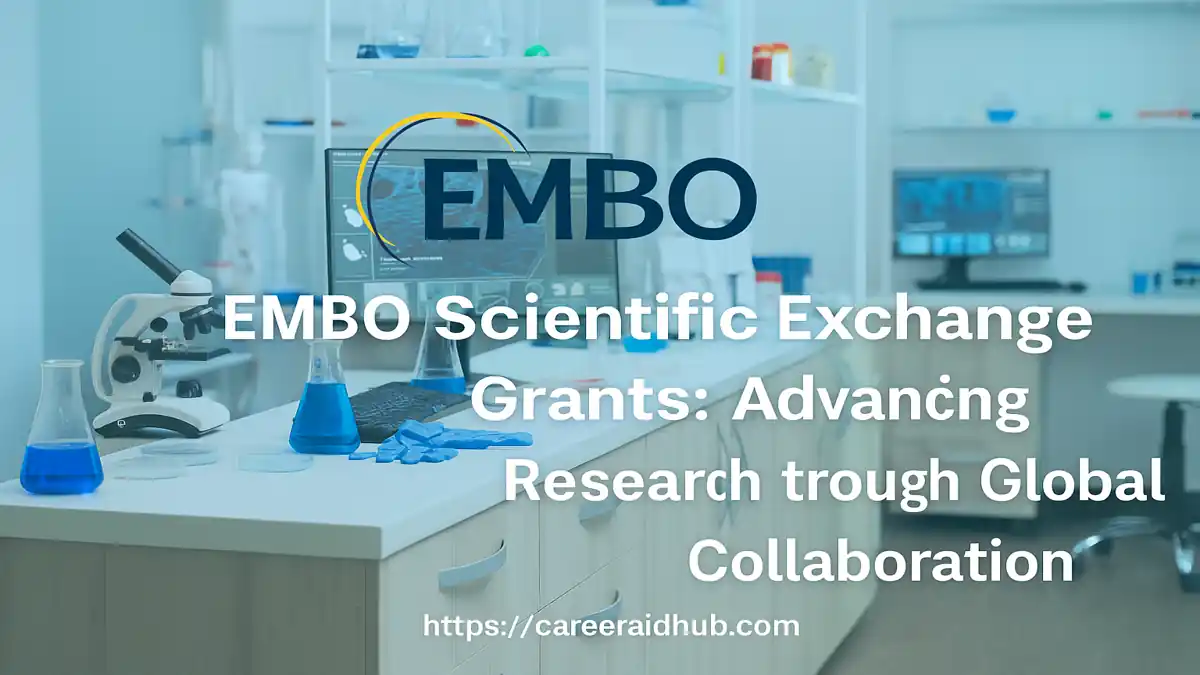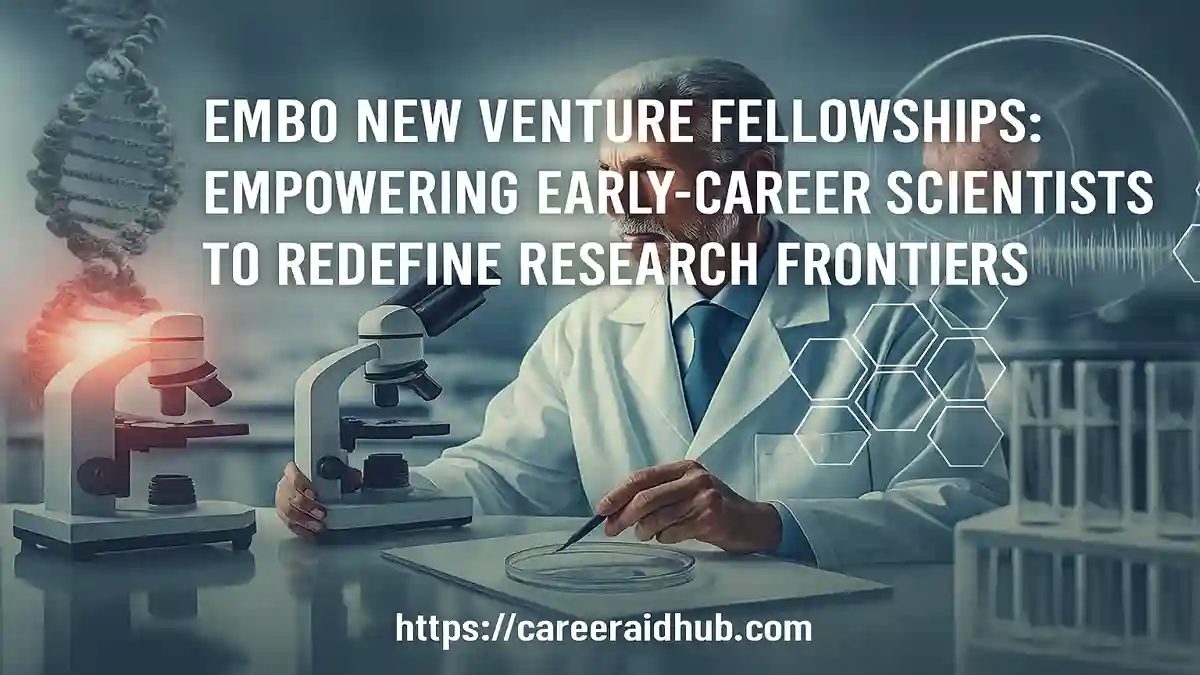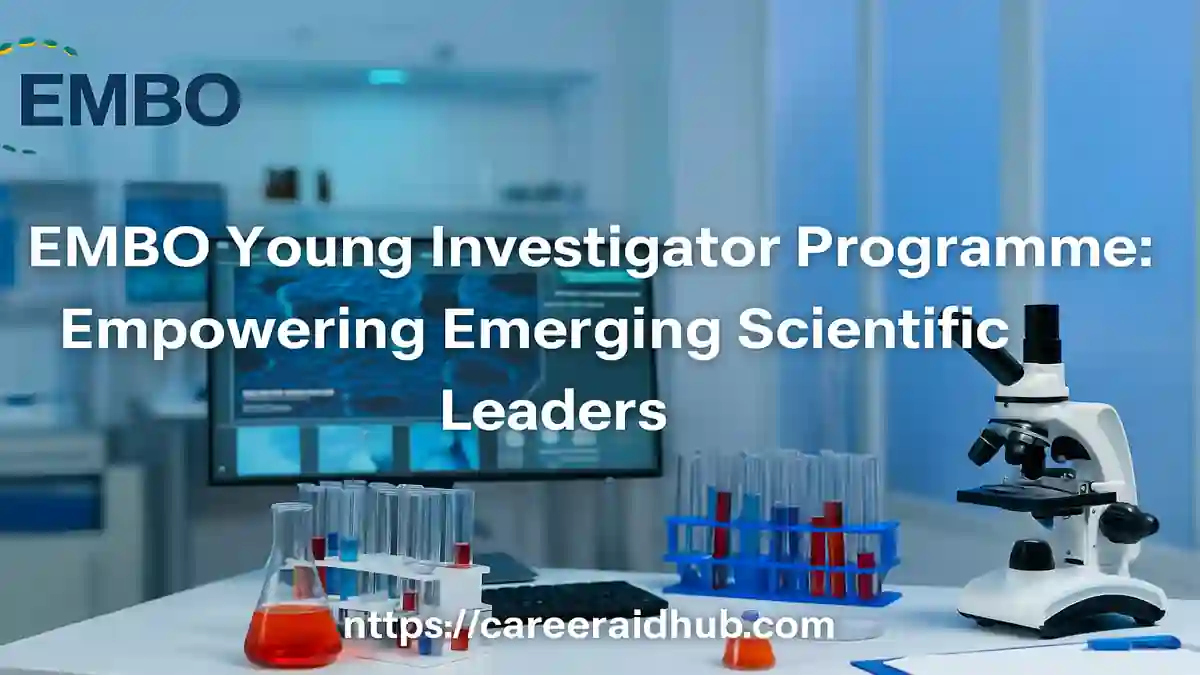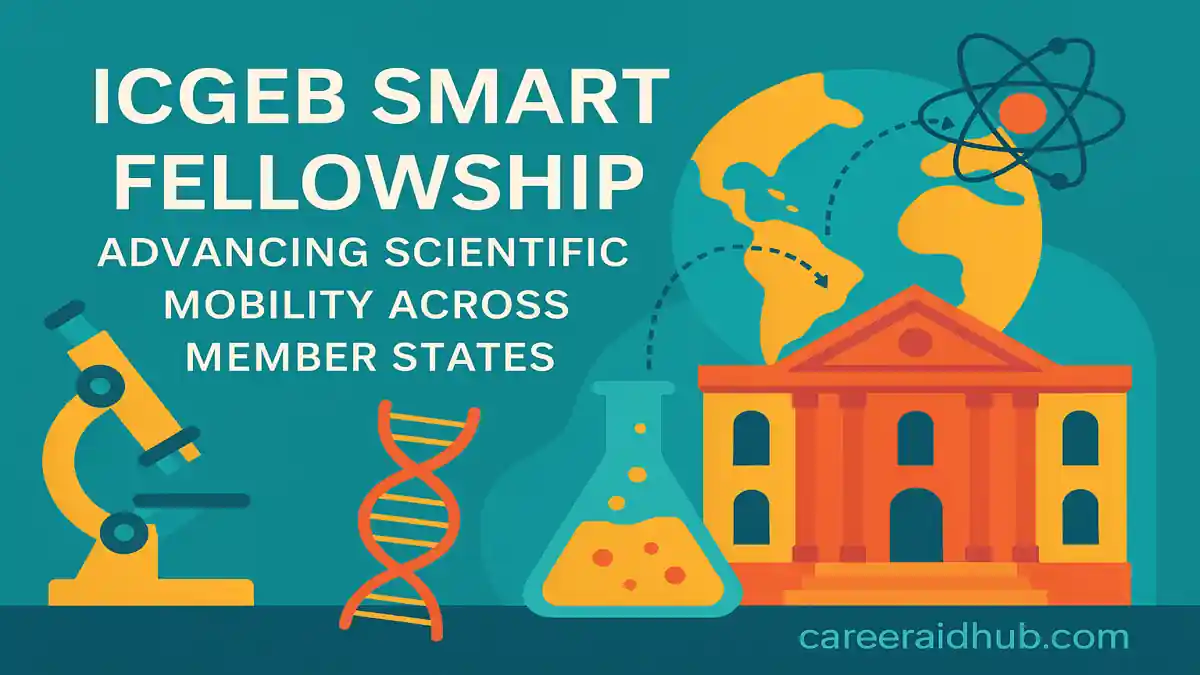Introduction
The European Molecular Biology Organization (EMBO) plays a central role in strengthening scientific excellence across borders. Through its wide range of programs, EMBO ensures that life scientists can share expertise, transfer knowledge, and create sustainable professional networks.
The EMBO Scientific Exchange Grants program funds short-term international research visits of up to three months. It covers travel and subsistence costs, enabling scientists to access unique expertise, advanced techniques, and specialized facilities not available in their home laboratories, while also building long-term collaborations in the life sciences.
Among its most impactful initiatives is the Scientific Exchange Grants scheme. These grants are designed to provide scientists with opportunities to work in laboratories abroad for short periods, typically from one week to three months. By funding travel and living expenses, the program allows researchers to learn new methods, apply advanced technologies, and foster international cooperation. This investment in cross-border collaboration helps enhance both individual careers and global scientific capacity.
Purpose & Overview
Promoting Knowledge Transfer
The grants focus on encouraging the exchange of ideas and skills between scientists in different countries. By spending dedicated time in another laboratory, fellows gain exposure to novel techniques and can adapt them to their own projects once they return home.
Bridging Capability Gaps
Many institutions lack access to specialized infrastructure or advanced technologies. This program removes those limitations by enabling researchers to temporarily
Eligibility Criteria
To maintain high standards and ensure fairness, applicants must meet specific eligibility conditions:
-
- Applicants must be active researchers in life sciences with a minimum of one year of postgraduate-level experience.
- Visits must involve institutions in different countries. Exchanges within the same country are not supported.
- Applications should demonstrate new collaborations. Existing partnerships or prior exchanges with the same host laboratory are not considered.
- Visits aimed purely at training courses are not eligible unless they are directly linked to an ongoing research project.
- Researchers associated with certain external programs, such as JST’s ASPIRE or PRESTO, may also qualify under specific agreements.
Additionally, fellows must commit to returning to their home laboratory for at least six months after the visit. This condition ensures that newly acquired expertise benefits their original institution.
Grant Benefits
Financial Coverage
The EMBO Scientific Exchange Grants cover essential costs that might otherwise deter researchers from pursuing international collaborations:
-
- Travel expenses to and from the host laboratory.
- Subsistence allowances based on local rates to cover accommodation and living costs.
- Funding is provided only for the fellow, not for dependents.
The maximum duration funded under EMBO is 90 days, but in cases where
Application Process
No Fixed Deadlines
One of the program’s advantages is its rolling application process. Researchers can apply at any time during the year. However, to ensure smooth processing, applications should be submitted at least three months before the planned visit and no later than 30 days prior to the start date.
Required Materials
Applicants are expected to submit:
-
- An updated CV and a valid ORCID identifier.
- Contact details of two referees, one of whom must be a current or recent supervisor.
- A research proposal of up to 1,800 words with references, explaining the goals and significance of the visit.
- A confirmation letter from the host laboratory indicating support and feasibility.
- Formal referee letters and institutional approval from both home and host institutions.
Decision Timeline
Once submitted, applications undergo an eligibility screening, followed by evaluation by the EMBO Scientific Exchange Grants Board. Proposals are assessed for scientific merit, feasibility, and originality. The final decision is taken by the Programme Head, with notifications generally issued
After the Visit
Successful fellows must fulfill several obligations after completing their exchange:
-
- Submit a two-page report summarizing outcomes, techniques learned, and potential for future collaboration.
- Provide a letter from their home institution confirming they resumed work for at least six months.
- EMBO then issues an official certificate recognizing the fellowship and visit, which can be valuable for future career opportunities.
Why This Grant Matters
Tangible Impacts on Research
-
- The grants enable rapid knowledge transfer that accelerates scientific progress.
- By accessing new methods and equipment, researchers enhance the depth and quality of their projects.
- The exchange of ideas often leads to publications, joint projects, and novel lines of inquiry.
Career Advancement
-
- Fellows expand their professional networks, strengthening future academic or industry opportunities.
- Exposure to diverse scientific environments boosts problem-solving skills and broadens perspectives.
- Returning with advanced knowledge increases the fellow’s value to their home institution.
Expert Tips for a Strong Application
-
- Plan ahead: Engage with your host laboratory early to secure support and align objectives.
- Justify clearly: Show how your proposed visit fills a capability gap and contributes to both labs.
- Be original: Avoid applying for repeat collaborations—EMBO values noveltyand fresh connections.
- Select referees strategically: Ensure referees can highlight your strengths and potential.
- Take EMBO’s integrity course: Completion demonstrates commitment to responsible conduct in research and strengthens your profile.
Program Overview
|
Feature |
Details |
|
Program Name |
EMBO Scientific Exchange Grants |
|
Host Countries |
EMBC Member States and global partners (India, Singapore, Taiwan, Chile) |
|
Funded By |
European Molecular Biology Organization (EMBO) |
|
Duration |
1 week to 3 months (extensions possible with complementary funding) |
|
Study Mode |
Full-time, laboratory-based exchange |
|
Eligibility |
Life scientists with at least one year of postgraduate research experience |
|
Financial Support |
Travel expenses and country-based subsistence allowance |
|
Application |
Continuous submissions; apply at least 30 days before intended start date |
|
Key Conditions |
No prior collaborations; mandatory six-month return to home laboratory |
|
Deadline |
Rolling applications; selections ongoing; next cycle update will be posted soon |
|
Official Website |
Conclusion
The EMBO Scientific Exchange Grants represent an invaluable resource for scientists seeking to expand their research horizons. With no rigid deadlines, flexible funding, and an emphasis on originality, these grants encourage meaningful collaborations that strengthen both personal careers and the broader life science community.
For researchers eager to gain new skills and build lasting global networks, the program provides a unique pathway. By applying early, crafting a strong proposal, and securing robust institutional support, applicants can maximize their chances of success and ensure that the benefits of international collaboration extend well beyond their visit.
Frequently Asked Question (FAQs)
EMBO Scientific Exchange Grants support short-term international research visits, helping scientists gain new skills, exchange knowledge, and build global collaborations.
PhD students and postdoctoral researchers from eligible countries can apply, provided their project aligns with EMBO’s focus on molecular life sciences.
The fellowship funds research visits between one week and three months, depending on the project scope and collaboration goals.
The grant covers travel costs and subsistence allowance, ensuring researchers can focus on training and collaboration without financial burden.
Applicants must submit an online application via the EMBO portal, including a research proposal, CV, and invitation letter from the host lab.
Applications are accepted year-round, but candidates must apply at least three months before their intended research visit begins.
Yes, applicants may hold other fellowships, provided there is no duplication of funding for the same costs covered by EMBO.
The program primarily supports molecular life sciences, but interdisciplinary projects linked to this field may also be considered.
Yes, EMBO supports global scientific exchange, allowing researchers to collaborate with host institutions in and beyond Europe.
Success rates vary annually, but well-prepared proposals with strong scientific merit and collaboration potential have a competitive advantage.
Premium Mentorship for a Stronger Application
- Premium Mentorship: personalised 1:1 guidance for this and similar opportunities
- In-depth review of your CV, academic profile, and key statements
- Aligned with international selection criteria so your profile matches what panels expect
- Stronger, more compelling narrative for highly competitive calls
- Step-by-step support from opportunity mapping to final submission (fee-based)










